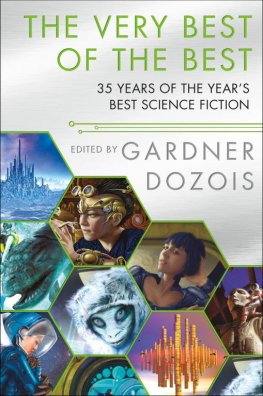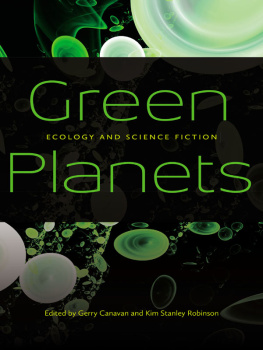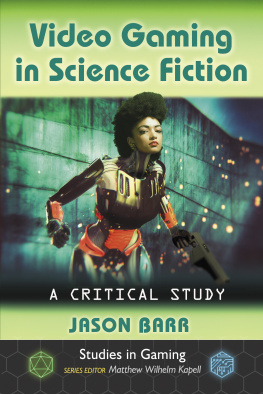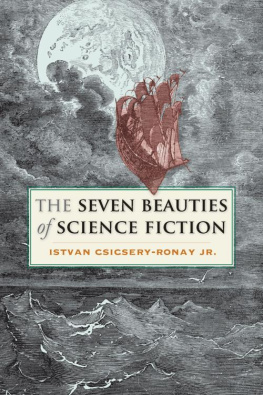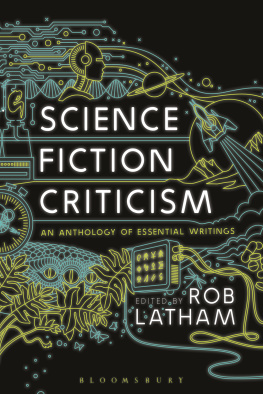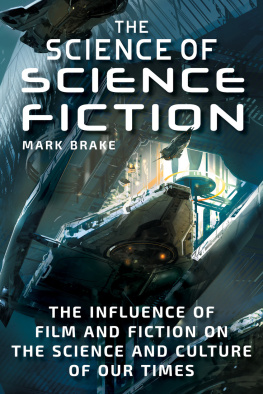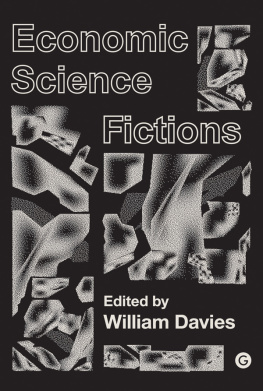DIS-ORIENTING PLANETS
DIS-ORIENTING PLANETS
Racial Representations of Asia in Science Fiction
Edited by Isiah Lavender III
University Press of Mississippi / Jackson
www.upress.state.ms.us
The University Press of Mississippi is a member of the Association of American University Presses.
Copyright 2017 by University Press of Mississippi
All rights reserved
Manufactured in the United States of America
First printing 2017
Library of Congress Cataloging-in-Publication Data
Names: Lavender, Isiah, III editor.
Title: Dis-orienting planets : racial representations of Asia in science fiction / edited by Isiah Lavender III.
Description: Jackson : University Press of Mississippi, 2017. | Includes bibliographical references and index.
Identifiers: LCCN 2016036167| ISBN 9781496811523 (cloth : alk. paper) | ISBN 9781496811547 (epub institutional) | ISBN 9781496811554 (pdf single) | ISBN 9781496811561 (pdf institutional)
Subjects: LCSH: Science fiction20th centuryHistory and criticism. | Science fiction21st0th centuryHistory and criticism. | Asians in literature. | Race in literature. | AsiaIn literature.
Classification: LCC PN3433.6 .D565 2017 | DDC 809.3/8762dc23
LC record available at https://lccn.loc.gov/2016036167
British Library Cataloging-in-Publication Data available
CONTENTS
Isiah Lavender III
Veronica Hollinger
Takayuki Tatsumi
Uppinder Mehan
Stephen Hong Sohn
Amy J. Ransom
Timothy J. Yamamura
Stephanie Li
Malisa Kurtz
Haerin Shin
Baryon Tensor Posadas
Bradford Lyau
Jeshua Enriquez
Robin Anne Reid
Cait Coker
Suparno Banerjee
Graham J. Murphy
Joan Gordon
ACKNOWLEDGMENTS
First and most importantly, I must thank God for the fortitude and drive to complete a second edited collection. It can be a hard thing to be a liberal Christian in academia. Second, I am always appreciative of my wife Heather for giving me time and space to do this work. Likewise, I am thankful to my boys, Kingsley and Frazier, for their useful distractions, to my sister Melissa for conversations about my work while walking, and to my recently discovered older brother John for his encouraging words. Family involvement motivates me.
Being able to do a follow-up collection simply amazes me, and I must truly express my gratitude to in-house editor Vijay Shah, and his assistant Lisa McMurtray, for helping me get it done. Similarly, I greatly value the assistance offered by two of my graduate students, Amandine Faucheux and Elizabeth Gilliland, who helped with the initial editing stages, and I hope they learned a great deal from the experience. I am, of course, grateful to my writing exchange partners here at LSU, Sharon Aronofsky Weltman and Sunny Yang, as well as others of my colleagues who listened to my splendiferous miseries with editing, from finding a palatable title to chasing down pesky contributor agreement formsBrannon Costello, Daren Dean, Bill Demastes, Carl Freedman, Phil Maciak, Patrick McGee, Elsie Mitchie, Daniel Pena, and Pallavi Rastogi.
I would also like to thank my friends and colleagues beyond LSU for the kind wishes and unflagging supportGrace Dillon, Taryne Taylor, Gerry Canavan, David Higgins, Lisa Yaszek, Sherryl Vint, Brooks Landon, Rob Latham, Ritch Calvin, Mark Bould, Nalo Hopkinson, David OHara, Dwayne Coleman, Lori Leavell, and Chuck Bane. Old friends and new at ICFA and SFRA, thank you.
I am also thankful to the Journal of the Fantastic in the Arts, and its editor Brian Attebery, for giving Takayuki Tatsumi permission to reprint his essay Race and Black Humor: From a Planetary Perspective, which first appeared in volume 21.3 (2010), pages 43954. Equally, I would also like to thank Mingwei Song and The Journal of Comparative Literature in China for the rights to the original English version of Veronica Hollingers Chinese language essay Great Wall Planet: Estrangements of Chinese Science Fiction, which was translated into Chinese by Chen Guangxing and first appeared in volume 2015.3, pages 2737.
DIS-ORIENTING PLANETS
INTRODUCTION
Coloring outside Science Fictions Lines
ISIAH LAVENDER III
I intended to start this introduction with reminisces on my own childhood experiences of television, film, and books to pursue questions of race and ethnicity in science fiction (SF). I wanted to talk about my love for adaptations of Japanese anime series appearing on American television from the late 1970s to the mid-1980s such as Star Blazers (197984), Battle of the Planets (197885), Astro Boy (198081), Robotech (1985), and Voltron (198485), among others. I also considered discussing my affection for Kung Fu Theater on Saturday afternoons, where I first saw Bruce Lee in Enter the Dragon (1973) and watched English-dubbed films like Five Deadly Venoms (1978). As a youth, I wanted to kick ass like Bruce Lee did, not Jim Kelly (and I still do!). I thought nothing of wanting to be the Asian lead, Lee, as opposed to the black secondary character, Williams, even if his Afro was ultra-cool.
I have practiced comparative racialization as I understand it long before the idea was codified in PMLAs special topic issue, Comparative Racialization (2008). In that volume, Shu-Mei Shih shows how comparative thinking relates to the worldliness of race and how affinities between instances of racialization hinge on where the colonial turn has left indelible marks (1349). Even though my childhood self knew zilch about Western colonialism, I must have somehow recognized that race, negative or positive, structured relations between the so-called yellow, black, and white races when considering Enter the Dragons evil white henchman OHara (Bob Wall). Even as a ten-year-old, I could intuit that white people seemed to be in control of everything that I could see with my own eyes.
As I would later see, there are benefits to the research method of analyzing the specificities of racial difference in novels such as the partly black British writer M. P. Shiels The Yellow Danger: or, What Might Happen if the Division of the Chinese Empire Should Estrange all European Countries (1898) as compared to something like American Thomas Dixon Jr.s The Leopards Spots: A Romance of the White Mans Burden, 18651900 (1902). Both novels display white supremacist thinkingHardy reflects anti-Asian sentiment in England; Gaston reflects anti-black sentiment in Americaand project such racism well into the future through white protagonists John Hardy and Charles Gaston, respectively. But I edited out the comparison in my first book Race in American Science Fiction (2011).
When thinking about this introduction, I also envisioned talking about when my mother took me to see Ridley Scotts Blade Runner (1982). As an eight-year-old, I was captivated by images of a police hover car zipping past an immense advertisement of a pretty Geisha eating candy on the side of a Los Angeles skyscraper turned neon billboard and the scenes from streets where Asian languages and cultures dominate the wet, gritty futurescape. Of course, I was not familiar with the concept of techno-Orientalism then, but I could recognize in the dream of flying cars mixed with commodified Asian images not a sense of anxiety, but instead the norm it was creating for its American audience. With Japan in mind, David Morley and Kevin Robins first formulated techno-Orientalism to mean racist images of Asians as unfeeling aliens cyborgs and replicants within the political and cultural unconscious of the West resulting from the dystopian image of capitalist progress (170). I actually prefer Greta Aiyu Nius revised definition of techno-Orientalism because she does not limit [her] focus to a specific Asian nation or distance the concept from Asia entirely; rather, her version points to the way [techno-Orientalism] ignores the history and construction of relationships between Asian people and technology, particularly those deemed emerging or revolutionary and suggests how it is intertwined with capitalism and consumption (74). Nius explanation of techno-Orientalism is both broader and deeper, including all of Asia, the Pacific Rim, and the Indian subcontinent in its practice of ascribing, erasing and/or disavowing relationships between technology and Asian peoples and subjects (74). I think of techno-Orientalism as an admixture of politics, racism, and technology. This view of techno-Orientalism challenges visions of all Asians as a monolithic group and promotes how scholars practice comparative racialization through genre conventions to interrogate Orientalized futures. Science fiction can generate social change, as such alternative racial futurisms as Afro-futurism, Chicano/a futurism, and Indigenous futurisms attest.



